Oyebanji Akins is a Nigerian-US-based media influencer, podcaster, writer, music critic, entrepreneur, and founder of CTDA Media — Connecting The Dot Africa — Akins has helped shape Afrobeats’ global perception. He speaks about his dedication to promoting African music and culture, as it continues to shape the industry narrative and inspire artists, professionals, and enthusiasts alike. Ferdinand Ekechukwu brings the excerpts:
Can you briefly take us through your background and the journey that has brought you where you are today?
I’m Olumide Akinlolu known as Oyebanji Akins on social media, a proud son of Ogun State, Nigeria, born and raised in Abeokuta to a family deeply rooted in art and culture. Driven to expand my horizons, I took a leave to study in Malaysia, a transformative period that ultimately paved my path to the United States in 2016. Life in America brought its own challenges and opportunities. To maintain flexibility, I worked as an Uber driver while exploring my creative side. Art and culture have always been in my blood. My father was an actor and poet in the 1990s, known for his stage performances in productions like Baba Gbalegbo, Iyawo Alhaji and Eru Esin, often joined by my mother for stage play. That artistic lineage fueled my passion for music, leading me to DJing as a side hustle. Despite never formally reading music notation, I honed my musical talents as a church choir master, learning to create melodies and rhythms from scratch. Though my creative pursuits opened doors, including hosting shows in Houston with support from generous members of the Nigerian community, they didn’t initially yield the sustainable success I envisioned. Eventually, the onset of COVID-19 inspired me to launch my clothing brand, Africanrootstore.org, blending my cultural heritage with entrepreneurship. Unfortunately, the venture faced financial mismanagement challenges, prompting me to pivot once again. This journey led me to found CTDA Media — Connecting The Dot Africa — a platform born from my deep belief that African voices and cultural narratives deserve a global stage. What started as sharing my perspectives on X (formerly Twitter) grew rapidly. With a committed team and consistent engagement, we’ve organically generated over 130 million impressions on X through insightful commentary on entertainment and cultural trends across Nigeria, North America, and beyond in 2024. Today, CTDA Media stands as a cultural bridge, amplifying African and diaspora stories through media critique, digital storytelling, and strategic insights. I’m passionate about building the brand into a hub that not only informs and entertains but also drives meaningful cultural and economic impact on a global scale.
As an entrepreneur, you run CTDA Media. Can you speak to us about that, the vision, partnerships, and your studio project?
CTDA Media, which stands for “Connecting the Dots Africa,” the name came from my desire to bridge cultural gaps and connect stories across the African continent and the diaspora. I believe there are so much creativity, talents, and history in the Black experience that deserves deeper exploration and global recognition. CTDA Media is a media company that blends critique, podcasting, and storytelling to shine a light on the Black experience in all its complexity, whether that’s through music reviews, cultural analysis, interviews, or highlighting untold stories. Right now, I’m growing a dedicated team that share this vision. We’re working on exciting projects, including building out our studio in Houston, which I want to turn into a creative hub where artists, content creators, and cultural thinkers can collaborate and produce high-quality content. I’m also exploring partnerships with other media outlets, brands, and creatives who believe in authentic storytelling and cultural preservation. The goal is for CTDA Media not just to be a media company, but a movement that empowers voices, connects cultures, and drives meaningful conversations, all for the culture and for future generations.
How did you get into music criticism, podcasting, and social media influencing?
It’s in my bloodline, something I’d even call spiritual for me. My journey into music criticism grew out of past pain, turning my struggles into lessons. I started by motivating myself, and gradually combined that drive with my educational background, life experiences, exposure, and a natural love for art. All these gave me confidence and faith in myself in this field. I also made it a habit to read relevant books for guidance. Podcasting was something I wanted to pursue as far back as 2017, hoping to ask questions and engage with Americans. However, I couldn’t continue at the time due to my circumstances and not fully understanding the American system. That initial idea eventually transformed into my clothing line in 2021, though I had to pause the business temporarily due to financial challenges. Running the clothing brand pushed me to learn a lot about social media. Having a Master’s degree in Cybersecurity and an MBA has also helped me not to fear the digital space, but instead to keep learning, especially from younger generations. I believe that if I’m given a lead, I’ll take my time to learn everything I need until I figure it out. My artistic side began young; my dad encouraged me to learn how to draw, carve, mold, and even use CorelDRAW, and all those skills paid off as I grew older. All of these experiences have shaped who I am today. Whether I’m listening to Burna Boy, Olamide, Asake, or Wizkid, or jamming to Lil Durk, Lil Baby, Lil Tjay, Meek Mill, Drake, J Cole, and others, music fuels my confidence and creativity. It’s what inspired me to evolve CTDA Media from just a podcast idea into a full-fledged media company.
How did you first get interested in Nigerian music and pop culture? Were there any major influences?
Coming from a background deeply rooted in culture, I was inspired early on by my grandfather, the late Chief James Akanmo Kolajo Akinlolu. He was a skilled farmer, a great hunter, an artist, an orator, and a talented composer of local music, such as Gelede music. In 1959, he was elected leader of the Egba-Egbado community in Ayetoro and led a group to perform and record Gelede and Bolojo dances live at Mapo Hall in Ibadan. Growing up, I was fortunate to spend time with my grandfather, including during his final days, and I believe much of my strength and passion for music and art came from him. Starting from primary school, I was exposed to both my cultural heritage and the Western world. My parents gave me and my younger brothers the freedom to watch American music videos and movies from a young age, sparking my curiosity about the gap between cultures. Over time, I’ve been deeply influenced by various issues in Nigerian music and culture. My first-ever music review on X (formerly Twitter) was about Burna Boy, “I Told Them” which went from 1 to 800,000 impressions in just 24 hours, marking the beginning of my journey on August 26, 2023. Another milestone was during the Ojude Oba festival before the most recent one. I was happy to see the spotlight, I even called my mother for historical details so my team and I could accurately review it. In my review, I criticized the government for bad roads and challenged the various family groups who attend to transform the carnival into a platform for business and development in Ijebu Ode. That piece garnered over one million impressions and contributed significantly to the attention the festival enjoyed this year, though many people don’t realize that my critical review was what initially drew so much focus to it.
What are your thoughts on the rise of Afrobeats and its global impact and culture?
My thoughts on the rise of Afrobeats and its global impact depend greatly on who’s discussing it and from what perspective. Having had the opportunity to work and travel extensively across the United States, I’ve seen firsthand the profound reach of Afrobeats, which often extends far beyond what many of our artists or even their labels fully realize. Much of the industry’s focus has traditionally been on Nigerians in the diaspora. However, in 2025 alone, we’ve seen artists who might not sell 1,000,000 copies in Nigeria achieving significant streaming numbers and concert attendance abroad, in North America, Asia, and Europe. While African audiences have long embraced Afrobeats, its global momentum is now undeniable. What excites me most is that our music is rooted in culture we can naturally draw from, giving Afrobeats the potential not just to rise but to sustain and grow its influence internationally.
For example, we’re witnessing more Nigerian artists winning major accolades like the Grammys. Being present at the last Grammy Awards to see Tems win for Nigeria was a deeply meaningful and historic moment for me. Beyond Tems, other Nigerian artists have also won or been nominated, which underscores the genre’s growing influence and resonance with global audiences. I believe Afrobeats’ impact is only the beginning. Other genres from the continent are emerging and gaining traction, as I’ve discussed in some of my recent reviews on my X page @Oyebanji_akins. Ultimately, Afrobeats is not just music; it’s a cultural movement that’s reshaping how the world connects with Africa.
What role do you think music critics play in the Nigerian music industry?
Music critics play a crucial role in the Nigerian music industry by offering honest analysis, highlighting artistic quality, and helping audiences understand the deeper meaning behind songs and cultural trends. They influence public opinion, shape conversations around music, and can even push artists to improve their craft. In Nigeria, where music is more than entertainment, it’s part of social identity and culture, critics also serve as a bridge between artists and fans. They bring attention to new talents, question industry practices, and sometimes hold artists and institutions accountable. Their work helps preserve cultural heritage while also pushing the industry toward global standards. Overall, music critics contribute to the growth, credibility, and global recognition of Nigerian music. The opportunity to have this session today comes from the impact I’ve been able to create through my work on my X page. My reviews and analyses have brought attention to many artists, helping some of the OGs who had been forgotten to receive their flowers, while also giving young artists a chance to be heard. I strive to help fans truly connect with the messages and storytelling behind each track, sharing facts and insights that shift attention toward artists’ albums and brands, for the culture and for the growth of the industry.
Have you noticed any particular shifts in the way Nigerian music is created or consumed in recent years?
Yes, I’ve definitely noticed major shifts in how Nigerian music is both created and consumed in recent years. One big change is stream farming, where some artists or labels artificially inflate streaming numbers to create buzz or chart success. While it helps some songs go viral quickly, fans have become more aware and sometimes question whether those numbers truly reflect genuine popularity or quality. Another shift is the blending of genres. Nigerian artists are now mixing Afrobeats with elements of Amapiano, R&B, Hip-Hop, Dancehall, and even Latin sounds. For example, Asake blends Fuji and Amapiano in a way that’s uniquely Nigerian yet globally appealing.
Fans often comment under my reviews about how they love or sometimes feel confused by these genre experiments, but it definitely keeps the scene fresh. International influences have also grown stronger. Artists like Burna Boy, Wizkid, and Tems are collaborating with big international names and winning global awards, which has raised the bar for production quality and storytelling. Fans on my page often say it makes them proud, but they also talk about wanting artists to stay true to the original Nigerian sound. Social media has completely changed the game.
Now, an artist can blow up overnight if a song goes viral on TikTok or trends on X (formerly Twitter). But just as quickly, artists can fade if they don’t maintain relevance. I’ve seen fans on my page talk about how songs feel “overhyped” because of social media trends, while some hidden gems go unnoticed until someone like me reviews them and brings attention to the artistry behind the music.
Overall, Nigerian music is more global, experimental, and fast-paced than ever before, and both the industry and the fans are adjusting to this new reality.
The relationship between music, social media, and celebrity culture has evolved, what are your thoughts?
The relationship between music, social media, and celebrity culture today is powerful but also very complex. Social media can elevate artists overnight, giving them massive reach and allowing fans to connect with them in real-time. But at the same time, it can also expose artists to harsh criticism, unrealistic expectations, and constant pressure to stay relevant. There’s now a strong expectation for artists to be entertainers 24/7, not just through their music, but through their lifestyle, fashion, opinions, and social presence. Unfortunately, clout often overshadows creativity, and sometimes it feels like the antics get more attention than the actual art. A viral moment can build hype, but if there’s no substance behind it, it fades fast. That’s where my brand, CTDA Media, comes in. We’re intentional about keeping the focus on the art, not just the antics. Whether it’s through reviews, cultural commentary, or highlighting underappreciated projects, we look at the story behind the music, the emotion in the lyrics, and the evolution of the artist, not just what’s trending. Our goal is to remind both fans and the industry that the music itself still matters.
How do you navigate the complexities of online discourse and criticism?
Navigating online discourse and criticism, especially on X (formerly Twitter), has taught me a lot. Before I post a critique, I do my research, listening multiple times, checking facts, and reading what fans are saying. My goal is always to keep it respectful and informed. Backlash is part of the game. Early on, like during my viral Burna Boy review, I used to take criticism personally. Now, I’ve learned to separate emotions from facts. If feedback is valid, I’m open to adjusting my view. But when I know my facts are solid, I stand my ground. A good example was my critique of the Ojude Oba festival. Some thought I disrespected tradition, but instead of reacting emotionally, I clarified my intentions and provided more contexts. I’ve grown from these experiences. In the past, I might have deleted posts under pressure, but now I see criticism as part of my job. With CTDA Media, my mission is to keep the focus on the entertainment, fashion and the culture, not just the noise.
What are some challenges you’ve faced, with regards to the Cynthia Morgan issue?
One of the biggest challenges I’ve faced was the Madrina fmka Cynthia Morgan issue. When I first spoke about her situation on my platform, it was out of concern for how artists sometimes get caught in difficult label deals and how their careers suffer. But the topic was sensitive, and it sparked a lot of pushback, arguments, and emotional reactions from fans, industry insiders, and people loyal to different sides of the story. The responsibility that comes with my platform is huge. I know my words can influence narratives and affect people’s reputations or mental health. So even though my intentions were to highlight the truth and advocate for artists’ rights, I had to learn how to handle stories like this with even more care. When the Cynthia Morgan topic resurfaced recently, I approached it differently. Instead of just sharing my opinion, I focused on verified facts, avoided speculation, and reminded my audience that artists are human beings who deserve empathy, no matter how complex the situation. The pushback was still there, people have strong feelings, but the conversation was more balanced because of how I presented it. What I’ve learned from situations like this is that being a critic is not just about sharing opinions; it’s about handling narratives responsibly. I’ve become more careful with my words, more committed to fact-checking, and more prepared for both praise and criticism. Through CTDA Media, I aim to keep telling the truth while protecting the dignity of the artists and the culture I love.
Are there any upcoming projects you’re working on?
About CTDA Media & Upcoming Book: Billion Dollar Dreams: From Nigeria to America I’m the founder of CTDA Media, which stands for “Connecting the Dots Africa.” The name reflects my mission to bridge cultures and connect stories across Africa and the diaspora. CTDA Media blends critique, podcasting, and storytelling to spotlight the Black experience, elevate underrepresented voices, and spark conversations that drive culture. We’re growing steadily, building out a creative studio in Houston, preparing the relaunch of CTDA Fashion, and developing an NGO to support young creatives and emerging talent. At the same time, CTDA Media is expanding and now open for collaborations and partnerships with reputable brands that share our commitment to authentic storytelling and cultural impact. Alongside these projects, I’m writing my book, Billion Dollar Dreams: From Nigeria to America, sharing my personal journey from Nigeria to the U.S, a story of challenges, ambition, and the believe that no dream is too big. It’s for anyone who needs a reminder that their goals are valid and achievable, no matter where they start. At CTDA Media, my mission remains clear: to keep the focus on the art, build bridges across cultures, and create meaningful work that leaves a lasting mark.





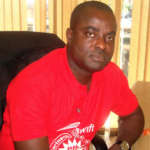
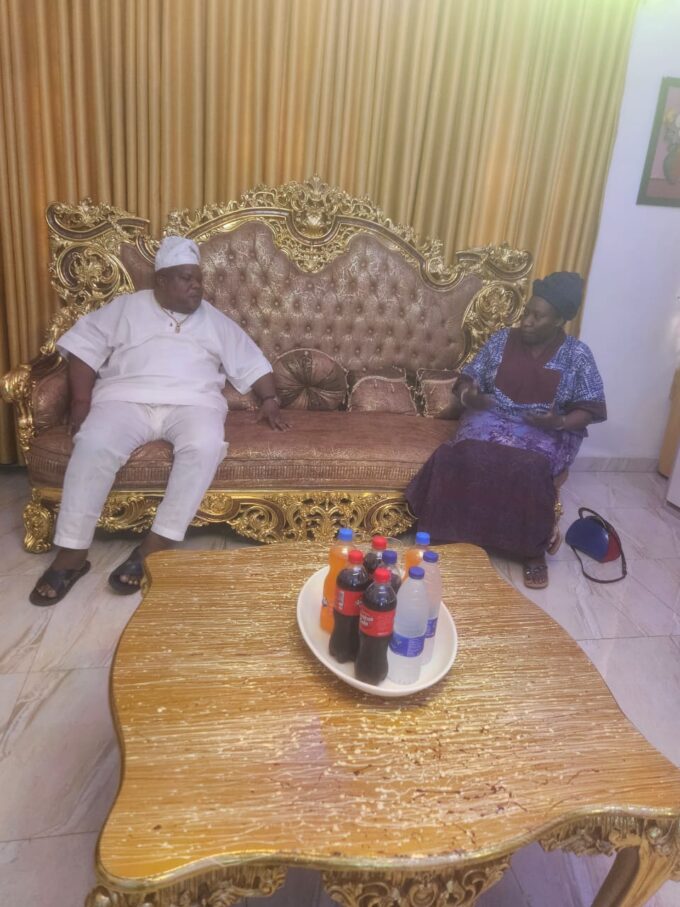

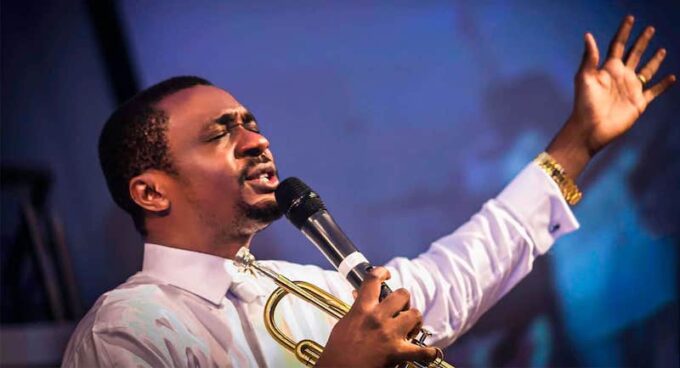
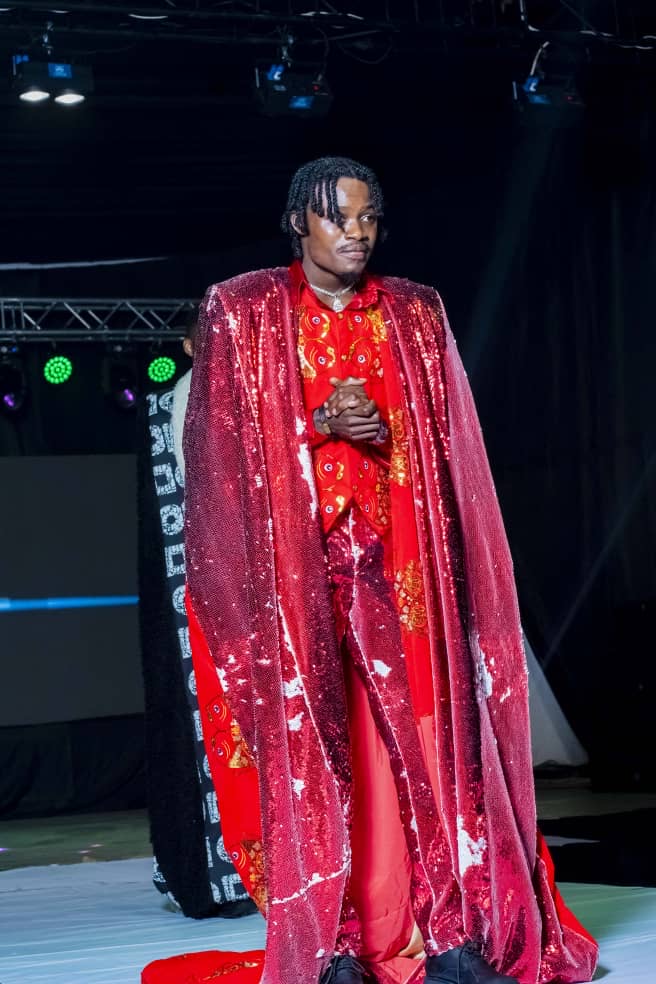
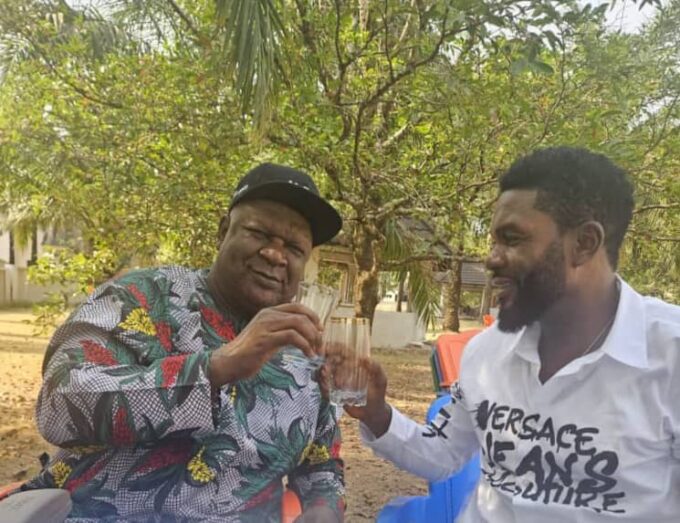
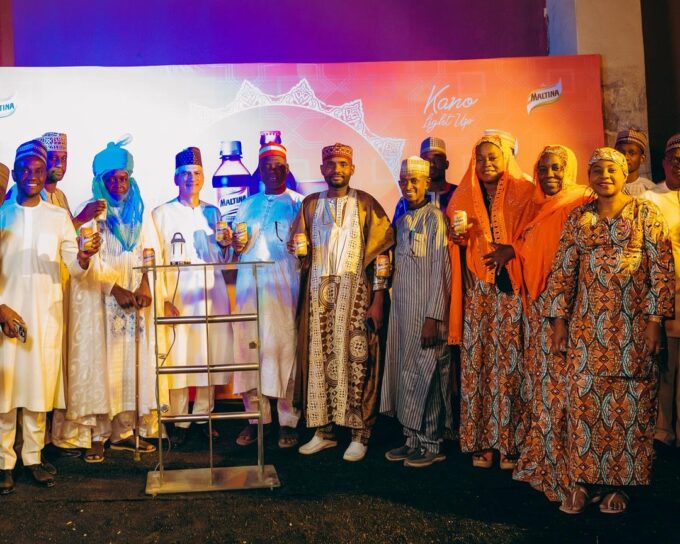



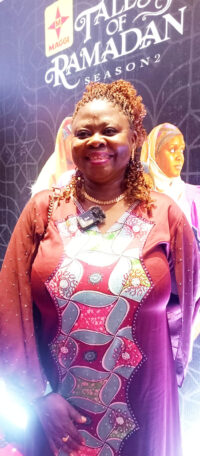

Leave a comment